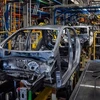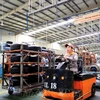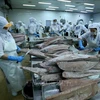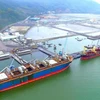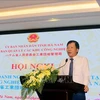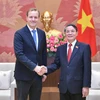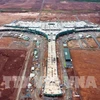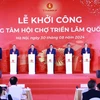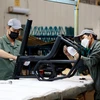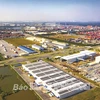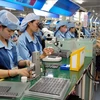Economic reforms aim to broaden choices for residents, said Vo Tri Thanh, Vice Director of the Central Institute for Economic Management (CIEM) at a conference evaluating achievements and challenges for the Vietnamese economy held in Hanoi on June 23.
After 30 years of Doi Moi (reform), Vietnam has become a middle-income country with an economy shifting toward industrialisation and a high level of global integration in addition to realising a raft of millennium development goals. However, the economy suffers from low quality of growth and the workforce, high transaction costs and inefficiency in state-owned enterprises and public investment.
Thanh underscored that mindset shifts and resolve of the whole political system play crucial roles in effective reform while the liberalisation of trade, investment and integration will help enhance Vietnam’s comparative advantage.
Macro-economic stabilisation, institutional reform and private sector development also contribute to effective reform, he added.
At the conference, participants discussed visions for economic reform and development progress through 2035 and sought solutions to address financial instability, including striving for a balanced financial systems, improving the capacity of financial supervision, stabilising the macro-economy, maintaining flexible exchange rates and boosting the capacity and independence of the central bank.
Meanwhile, economist Cao Viet Sinh recommended improvements in public investment efficiency and completing a legal framework for Government purchase and public-private partnerships.-VNA
After 30 years of Doi Moi (reform), Vietnam has become a middle-income country with an economy shifting toward industrialisation and a high level of global integration in addition to realising a raft of millennium development goals. However, the economy suffers from low quality of growth and the workforce, high transaction costs and inefficiency in state-owned enterprises and public investment.
Thanh underscored that mindset shifts and resolve of the whole political system play crucial roles in effective reform while the liberalisation of trade, investment and integration will help enhance Vietnam’s comparative advantage.
Macro-economic stabilisation, institutional reform and private sector development also contribute to effective reform, he added.
At the conference, participants discussed visions for economic reform and development progress through 2035 and sought solutions to address financial instability, including striving for a balanced financial systems, improving the capacity of financial supervision, stabilising the macro-economy, maintaining flexible exchange rates and boosting the capacity and independence of the central bank.
Meanwhile, economist Cao Viet Sinh recommended improvements in public investment efficiency and completing a legal framework for Government purchase and public-private partnerships.-VNA
